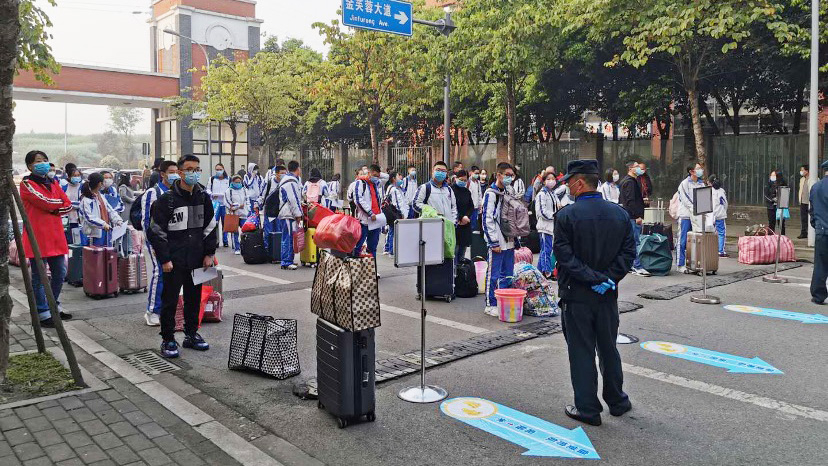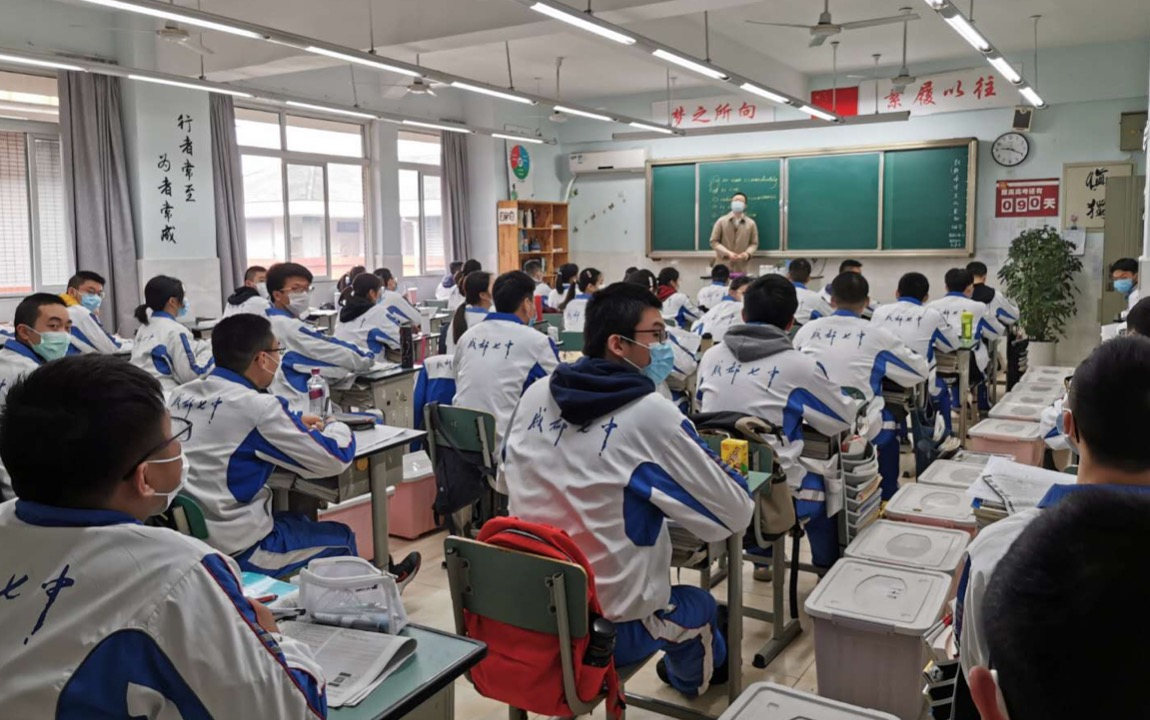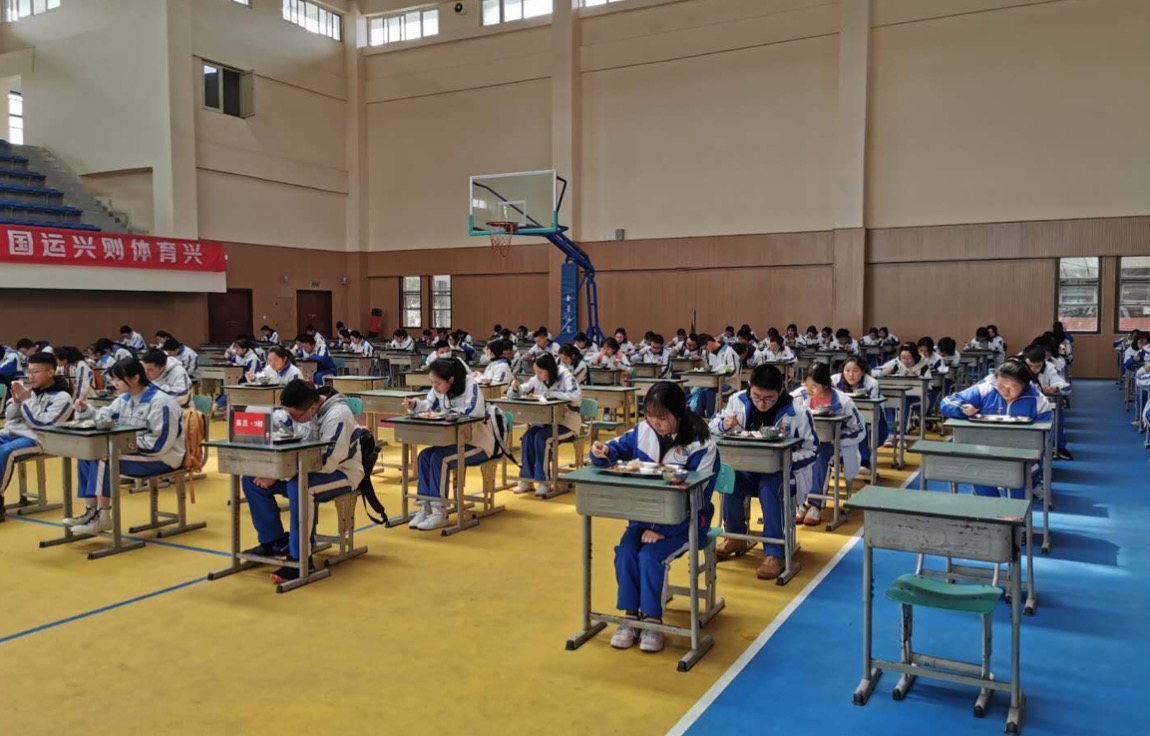04:15

After being closed for over two months, schools are reopening across China on a staggered schedule.
According to Xinhua, 10 provincial Chinese mainland regions, such as Guizhou and the Xinjiang Uygur Autonomous Region, have started the new semester for 12th-grade students who will sit China's national college entrance examination, gaokao, which is often touted as the most important test in their lifetime.
The national exam has been delayed everywhere for a month until July 7, except for in Beijing and Hubei Province, where the timetable will be set according to the local epidemic prevention and control situation.
Schools in Chengdu, the capital of Sichuan Province, have resumed classes since April 1. But preparing for entrance examinations isn't just the only thing schools are working on now.
According to Liu Qiang, the principal of Chengdu No. 7 Wanda High School, adjusting back to life in the classroom is paramount.
"For more than two months, students have been studying online at home. Their habits of getting up, eating, sleeping and learning, it's quite difficult to reorganize these habits," Liu told CGTN. "As for the gaokao, which has been extended for one month, it proves a relatively big pressure on students and even teachers."
Liu said the hotter weather and extended preparation time could pose "challenges their psychological state."

Teachers and students wear masks in the classroom, careful to keep a distance between one another. /CGTN
Teachers and students wear masks in the classroom, careful to keep a distance between one another. /CGTN
Worried about the students' mental health, Liu said the school conducted two online psychological tests in the last two months.
"Using big data analysis of the questionnaires, we found that about a third of our students have some problems with their mental health," he said.
The school has since brought in psychologists to help design a mental health course for both its students and teachers.
"We even bought stress-relief items, such as boxing tools, so students can let off steam if and when they want to," he said.
Bai Yitong, who plans to study fashion design and engineering, said she felt depressed during the time she was at home.
"While at home online learning, you can only see yourself," the 17-year-old said. "You don't know what state everyone is in. You will be nervous and tend to think a lot, and after a long time, you will feel depressed. I often asked myself, am I revising right? What happens if I fail my entrance examination?"
"I would always cry and would try to communicate with my parents, but they may not particularly understand me. In school, we have teachers to talk to, and they can give suggestions," Bai continued.
She said since returning to school and physical classrooms, her mood has improved, and her learning process has become more efficient.
Luo Yuhang, who has been an English teacher for 11 years, said he has noticed an improvement in students since the return to the physical classes.
"Last week, when they came back, we organized an exam to help them adjust to the diagnostic test on April 8 and 9. The results were not so satisfying. After all, they have been away from physical classes, so I am sure that can be understood," he said.
Luo said the biggest challenge for him is time.
"Luckily, the gaokao has been postponed to July. So, with more adequate time, I believe we can solve this [problem] because our students are strong within."
Distancing core prevention and control measure
Even as the COVID-19 outbreak appears to be stabilizing within China, schools are not taking any chances. Strict measures are in place to prevent cluster infections, secondary outbreaks, or a wave of infections.
These measures include temperature checks, leaving space between persons in a queue, mandatory health declaration forms verifying good health and a letter committing to follow the safety rules at school.
Liu said ensuring a suitable distance is kept from one another is at the core of the school's prevention work.
"Only those studying and working at the school can enter the school," he said. "If it's a non-resident student, we ask that either the student's parents pick him or her up after school, or the student takes chartered transportation straight back home. Once at home, the student is not allowed to go out. In a nutshell, students are only allowed at two designated locations: school and home."

The gymnasium at Chengdu No. 7 Wanda High School has been converted into a canteen to meet the schools social distancing measures. /CGTN
The gymnasium at Chengdu No. 7 Wanda High School has been converted into a canteen to meet the schools social distancing measures. /CGTN
Only those who work at the school and students who are cleared for classes can enter the facility, said Liu, and the measures extend outside the halls as well, especially for students who do not live on the campus.
"Only those studying and working at the school can enter the school," he said. "If it's a non-resident student, we ask that either the student's parents pick him or her up after school, or the student takes chartered transportation straight back home. Once at home, the student is not allowed to go out. In a nutshell, students are only allowed at two designated locations: school and home."
The school now has over 1,000 people, including its ninth and 12th-grade students, teachers, canteen staff, on campus. At full capacity, the school sees 4,000 people. It plans to fully reopen its other junior and high school classes in the coming weeks.